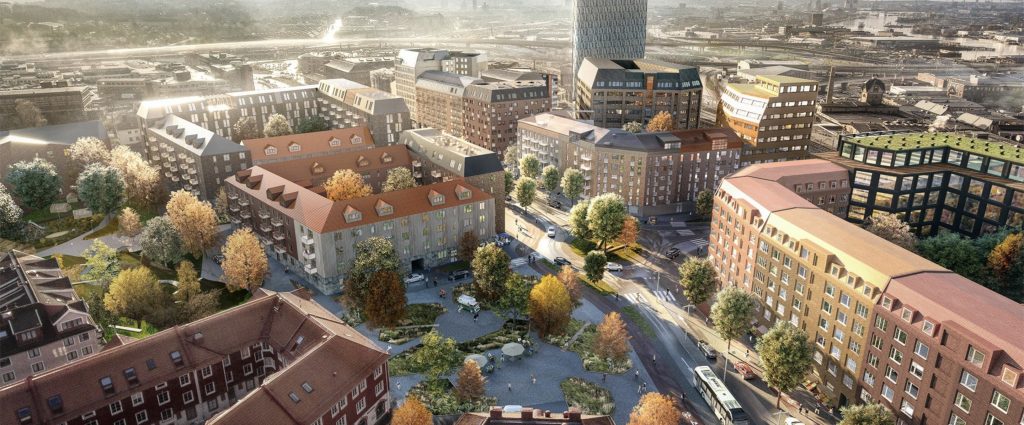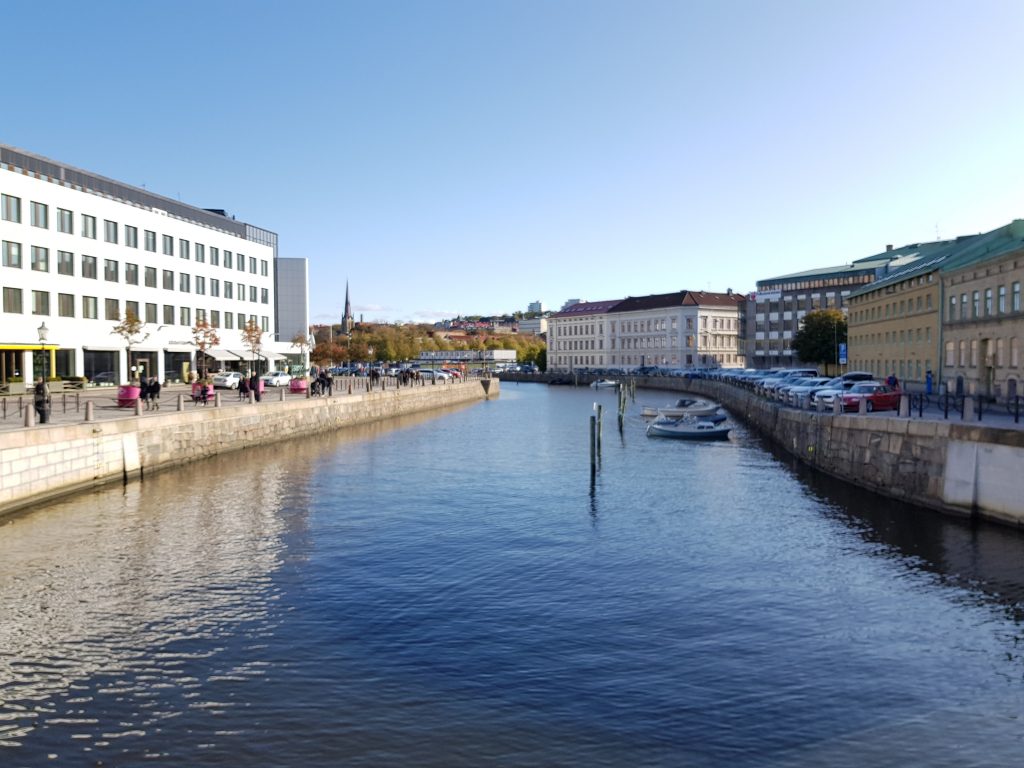View over Gothenburg. Image source: the author
After months of preparation, we had planned every detail. The speakers were booked, the invites sent. The morning of the workshop came, and I stood, ready to welcome our guests. Yet I had not set a foot outside of my apartment.
Hosting a workshop entirely online was a new experience for me, but one that is likely to become increasingly familiar as we find ways to adjust our ways of working under the restrictions that have come with COVID-19. The past months have resulted in many changes to the way we live, work and interact with the world around us. Peering into the future at the moment feels like trying to see through a thick fog – there is no clear image of what the world will look like in the coming months and years – changed, yes, but how and to what degree remains to be seen. In this time of uncertainty, I want to take the opportunity to reflect on what the changes that have occurred in the wake of the coronavirus mean for how we undertake and share our research as an international academic community.
Shifting to an online format: Webinars and digital workshops, featuring guest lectures
The HERILAND Workshop on the theme of Changing Environments took place from 11th-15th May. We had intended to host the event in person in the city of Gothenburg, Sweden, but with international travel impossible in response to the COVID-19 pandemic, we shifted to an online format.
The workshop consisted of a combination of webinars and digital workshops, and featured a number of guest lectures. Among these was a lecture by Professor Cornelius Holtorf, who took up the question of how heritage professionals can respond to the challenges posed by environmental change. Holtorf outlined the potential of building scenarios for the future, taking into account ongoing processes of environmental change such as globalisation, urbanisation and climate change, and stressed the need to consider how our responses to these trends in the present will impact further environmental change in the future. For instance, as heritage professionals we need to anticipate developments, evaluate their impacts and act accordingly. In particular, Holtorf stressed the importance of acquiring a futures literacy, to ask not only how to preserve heritage for future generations, but which heritage should we preserve? Which heritage will help future generations in solving important challenges that they will face? These questions are meant for addressing the future that lies further ahead, but such questions feel particularly apposite in the current moment where even the immediate future is uncertain.
Professor Holtorf’s lecture was complemented by a lecture by representatives from Västarvet, the Cultural Development Administration for the Västra Götaland Region in south west Sweden. This lecture demonstrated the value of working alongside regional development, and illustrated a landscape approach being implemented in practice. Other webinars held during the online workshop included presentations by Professor Anna Storm and postdoctoral researcher Chiara Valli, who provided insights into new ways to conceptualise post industrial heritage in the landscape, and explored challenges and ways forward in creating inclusive access to heritage through the example of the post industrial Gamlestaden area of Gothenburg.

Image source: Goteborg Stad 2020a
Challenging, but successful workshop
Despite the challenges of working completely in an online format, the workshop can be considered a success. The webinars stimulated thinking on the issue of heritage and planning in changing environments for the participating HERILAND ESRs (Early Stage Researchers), and the digital workshops provided an opportunity for the ESRs to discuss methodological skills and share updates on individual research projects.
However, as we all said our goodbyes on the final day and logged off Zoom after an intensive week of online interaction, I couldn’t help but feel there was something missing. It wasn’t just the absence of informal social interaction that normally characterises the conference session coffee breaks (though I certainly missed this too), it was something more. All 15 of us HERILAND PhD students are working, in some sense or another, with the concept of landscape. We had just had a workshop on the challenges of changing landscapes happening all around us, but at no point in the workshop did we actually interact with a physical landscape environment. Leaving the workshop, I couldn’t help but wonder what does it mean to research landscape whilst being absent from it?

Image source: Goteborgs Stad 2020b
Scholars of phenomenology have long argued that place (socially meaningful space) and space structures our experience of the world, forming a gathering point for memories and meaning that we draw upon in navigating our environment (eg Casey 1996; Tilley 1994). As Tilley (2008: 271) notes, landscapes ‘have a profound effect on our thoughts and interpretations because of the manner in which they are perceived and sensed through our carnal bodies’. The way that we interpret and understand landscape, then, has something to do with how we interact with it through our bodily experience of being in landscape. In planning the original Gothenburg workshop, we had hoped to do exactly this, incorporating activities at locations across the city to give an understanding of the urban landscape and to contextualise the particular issues at stake.

Image source: the author.
In moving the workshop online, these location-specific aspects of the workshop were lost, replaced by more abstract discussions. Of course, we are fortunate to live in a world where digital technology enables us to experience places visually through images, video, and various forms of mapping. We can continue to meet colleagues and share our research remotely through the plethora of online platforms that are now available to us. Indeed, a number of the HERILAND ESRs have been working with digital landscapes from the start. With such resources at hand, I have no doubt that, as a research community we will continue find ways to undertake our research on landscapes and build better understandings of the environments with which we interact and live in.
However, with COVID-19 travel restrictions set to last in place for some time yet, the question of what is lost when our direct experience of landscape is removed, and where we must rely on secondary representations, remains. What sort of interpretation do we build of a landscape when we do not experience it for ourselves? And what will the international academic landscape look like as we adapt to research in a post-COVID world?
References
Casey, E. 1996. ‘How to Get from Space to Place in a Fairly Short Stretch of Time: Phenomenological Prolegomena’. In K. Basso and S. Feld (eds) Senses of Place. Santa Fe; New Mexico: School of American Research Press. pp. 13-52.
Tilley, C. 1994. A Phenomenology of Landscape: Places, Paths and Monuments. Oxford; Providence, USA: Berg.
Tilley, C. 2008. ‘Phenomenological Approaches to Landscape Archaeology’. In B. David and J. Thomas (eds) Handbook of Landscape Archaeology. Walnut Creek, CA: Left Coast Press. pp. 271-6.
Images
Göteborg Stad 2020a. ‘Samrådsmöte för Gamlestads torg webbsänds’. Available at: https://stadsutveckling.goteborg.se/projekt/gamlestaden/nyheter/samradsmote-for-gamlestads-torg-webbsands/ Accessed 01.06.2020.
Goteborgs Stad 2020b. ‘Inga spårvagnar förbi Hagakyrkan i sommar’. Available at: https://stadsutveckling.goteborg.se/projekt/haga/nyheter/inga-sparvagnar-forbi-hagakyrkan-i-sommar/ Accessed 01.06.2020.

